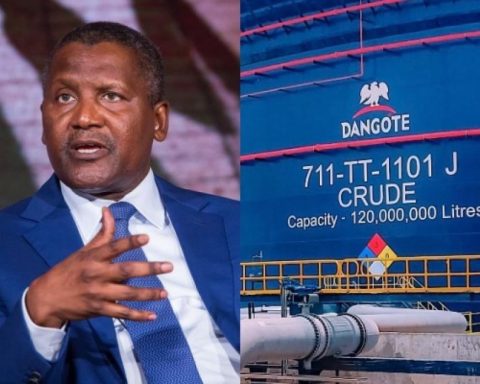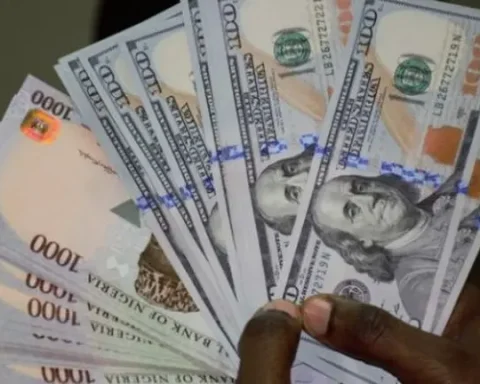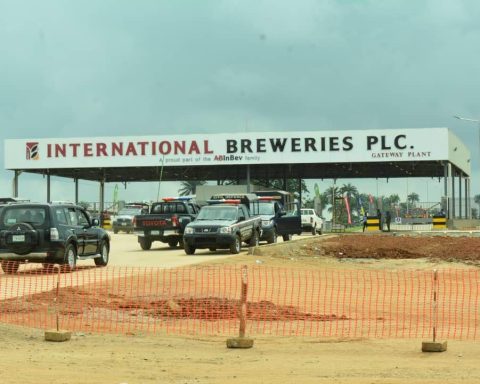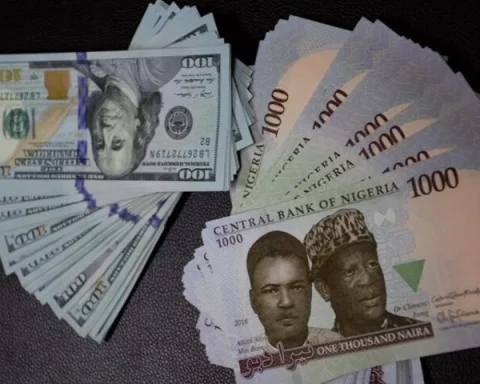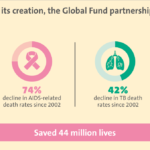Nigeria’s crude oil production climbed to over 1.8 million barrels per day (bpd) in July, marking the country’s highest output in more than three years.
The Nigerian Upstream Petroleum Regulatory Commission (NUPRC) confirmed the figures.
Join our WhatsApp ChannelNUPRC Chief Executive, Gbenga Komolafe, attributed the increase to enhanced security interventions and improved operational capacity.
Speaking at an energy conference, Komolafe said the country achieved a peak output of over 1.8 million bpd, with an average daily production of 1.78 million bpd throughout the month.
“We crossed the 1.8 million barrels per day mark in peak production last month, with an average of 1.78 million bpd,” he stated, adding that the production boost is part of Nigeria’s broader strategy to raise output by an additional one million bpd and achieve a long-term goal of 3 million bpd.
He noted that this recovery reflects renewed investor confidence, operational efficiency, and significant progress in curbing widespread oil theft and pipeline vandalism.
For years, Nigeria struggled to meet its OPEC+ production quota set at 1.5 million bpd as a result of chronic insecurity in oil-producing areas, frequent shutdowns of export terminals, and decaying infrastructure. However, a mix of security reinforcements and structural reforms appears to have changed the tide.
Central to the turnaround is the deployment of private security contractors and the expansion of government-led surveillance operations, particularly in the Niger Delta region.
The controversial pipeline monitoring contract awarded to Tantita Security Services, linked to former militant leader Thomas Ekpemupolo, also known as Tompolo, has been credited with reducing crude oil theft and restoring investor and community confidence.
In parallel, the rehabilitation of critical oil infrastructure, including export terminals and trunk pipelines at Forcados, Bonny, and Brass, has helped unlock previously shut-in production capacity.
READ ALSO:
- NUPRC’s Revenue Rises By 176.7% To ₦12.2trn In 2024
- How Oil Investor, Augustine Avuru, Lost N83.36m Daily In Six Months
- Oil Production: Nigeria Again Exceeds OPEC Quota In 2025
The production surge is also closely tied to the implementation of the Petroleum Industry Act (PIA) 2021. The Act has reorganized the sector’s regulatory framework, leading to the creation of the NUPRC and the Nigerian Midstream and Downstream Petroleum Regulatory Authority (NMDPRA). These agencies are tasked with improving transparency, operational efficiency, and fiscal stability across Nigeria’s oil and gas value chain.
Komolafe emphasized that the NUPRC would continue to collaborate with international oil companies, local producers, and community stakeholders to sustain the current momentum and drive further growth. “We are working strategically to raise Nigeria’s production by at least 1 million barrels per day,” he said. “Our commitment to stakeholder engagement and transparency remains firm.”
The increased production comes as a timely boost for the Nigerian economy, which remains heavily reliant on oil exports for foreign exchange and government revenue. At current global oil prices hovering around $83 per barrel the higher output promises to improve Nigeria’s trade balance, enhance forex reserves, and potentially ease pressure on the naira. It could also support government efforts to close the fiscal deficit, fund public services, and reduce reliance on debt.
Still, energy analysts warn that gains may not be sustained unless the underlying challenges, such as revenue leakages, fuel import dependence, and community unrest, are addressed holistically. With the July performance now surpassing Nigeria’s OPEC quota, the country may be better positioned to negotiate for a higher production cap in the future. Komolafe noted that the NUPRC remains committed to building a globally competitive upstream sector that will help unlock Nigeria’s full hydrocarbon potential.
As the government pushes forward with its “1 Million Barrels Per Day Incremental Production Plan,” stakeholders will be watching closely to see whether July’s performance marks a turning point or a temporary rebound.
Amanze Chinonye is a Staff Correspondent at Prime Business Africa, a rising star in the literary world, weaving captivating stories that transport readers to the vibrant landscapes of Nigeria and the rest of Africa. With a unique voice that blends with the newspaper's tradition and style, Chinonye's writing is a masterful exploration of the human condition, delving into themes of identity, culture, and social justice. Through her words, Chinonye paints vivid portraits of everyday African life, from the bustling markets of Nigeria's Lagos to the quiet villages of South Africa's countryside . With a keen eye for detail and a deep understanding of the complexities of Nigerian society, Chinonye's writing is both a testament to the country's rich cultural heritage and a powerful call to action for a brighter future. As a writer, Chinonye is a true storyteller, using her dexterity to educate, inspire, and uplift readers around the world.


